The way we live day to day has a direct impact on how energised – or drained – we feel. Further still, the lifestyle choices we make play a major role in how much daily ‘get up and go’ we have – but that also means we have the power to change things.
You may be surprised to learn how many parts of our lives can impact our energy levels, from nutrition and physical activity to stress levels and how much rest we get. Luckily, even small changes – like staying hydrated or practicing mindfulness – can make a huge difference.
Whatever point you’re starting at when it comes to boosting your energy levels, we’ve called on leading experts to share their best advice for helping you regain your spark. The best bit? You can give many of them a go right now…
32 lifestyle hacks for more energy
Keep stress down
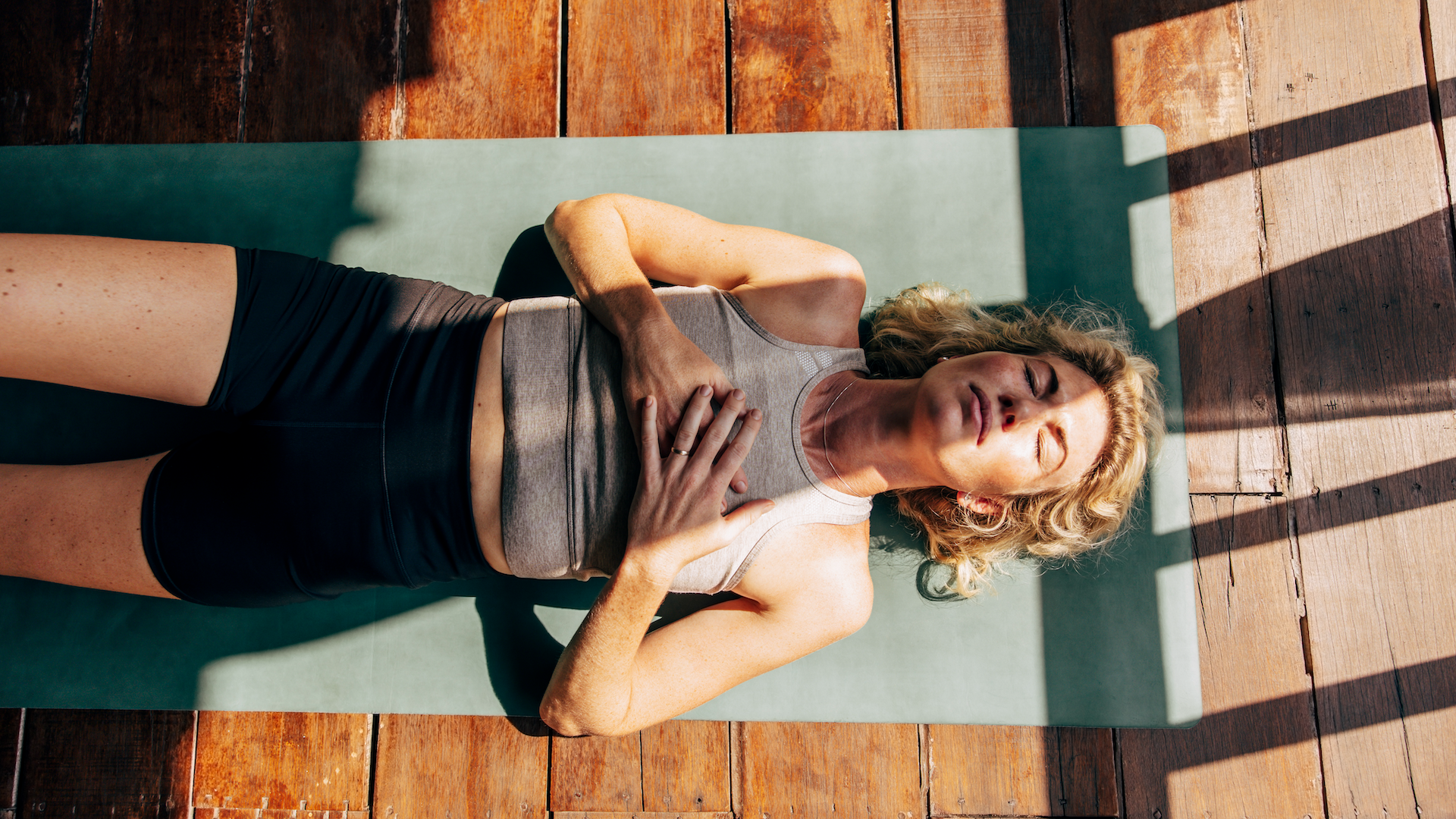
(Image credit: Getty Images)
“Managing stress effectively can have a powerful impact on your energy levels,” points out Kathryn Danzey, a health coach and founder of Rejuvenated. “When stress is high, your body produces excess cortisol, which can disrupt sleep, drain nutrient stores, and leave you feeling fatigued.”
Limit booze intake

(Image credit: Getty Images)
“Reducing or eliminating alcohol can significantly improve your energy levels,” says Kathryn Danzey, a health coach and founder of Rejuvenated. “Drinking disrupts your sleep cycles, dehydrates the body and places extra stress on your liver and adrenal glands – all of which contribute to fatigue.”
Get enough protein
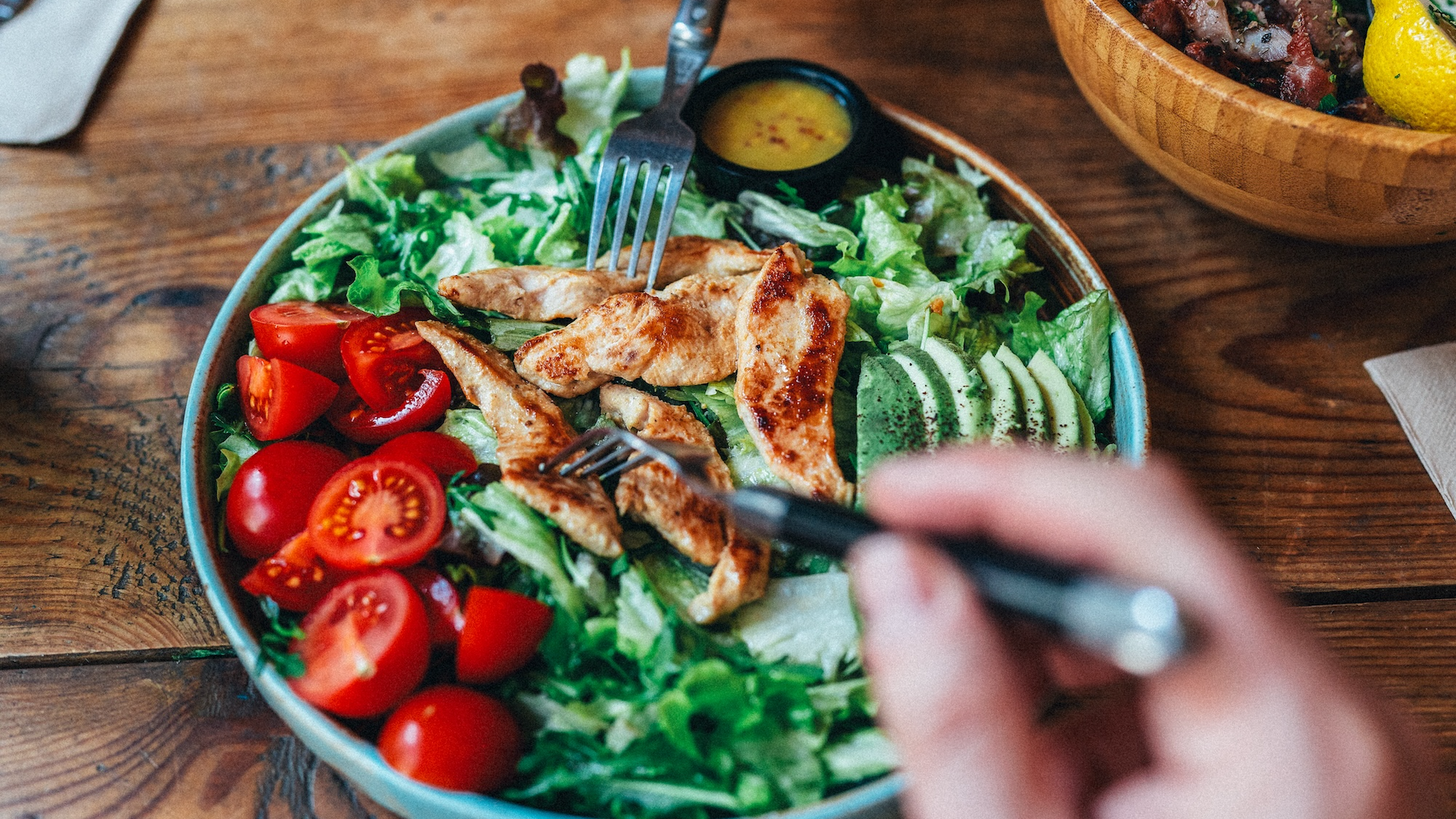
(Image credit: Getty Images)
“Incorporate a high-quality protein source with every meal and snack,” advises Ulrike Kuehl, head of nutrition at Lumen. “Meals or snacks high in refined carbohydrates can cause rapid glucose spikes, followed by sharp drops in energy. Including protein slows gastric emptying and reduces the glycemic response, resulting in a sustained release of energy throughout the day.”
Try practicing meditation
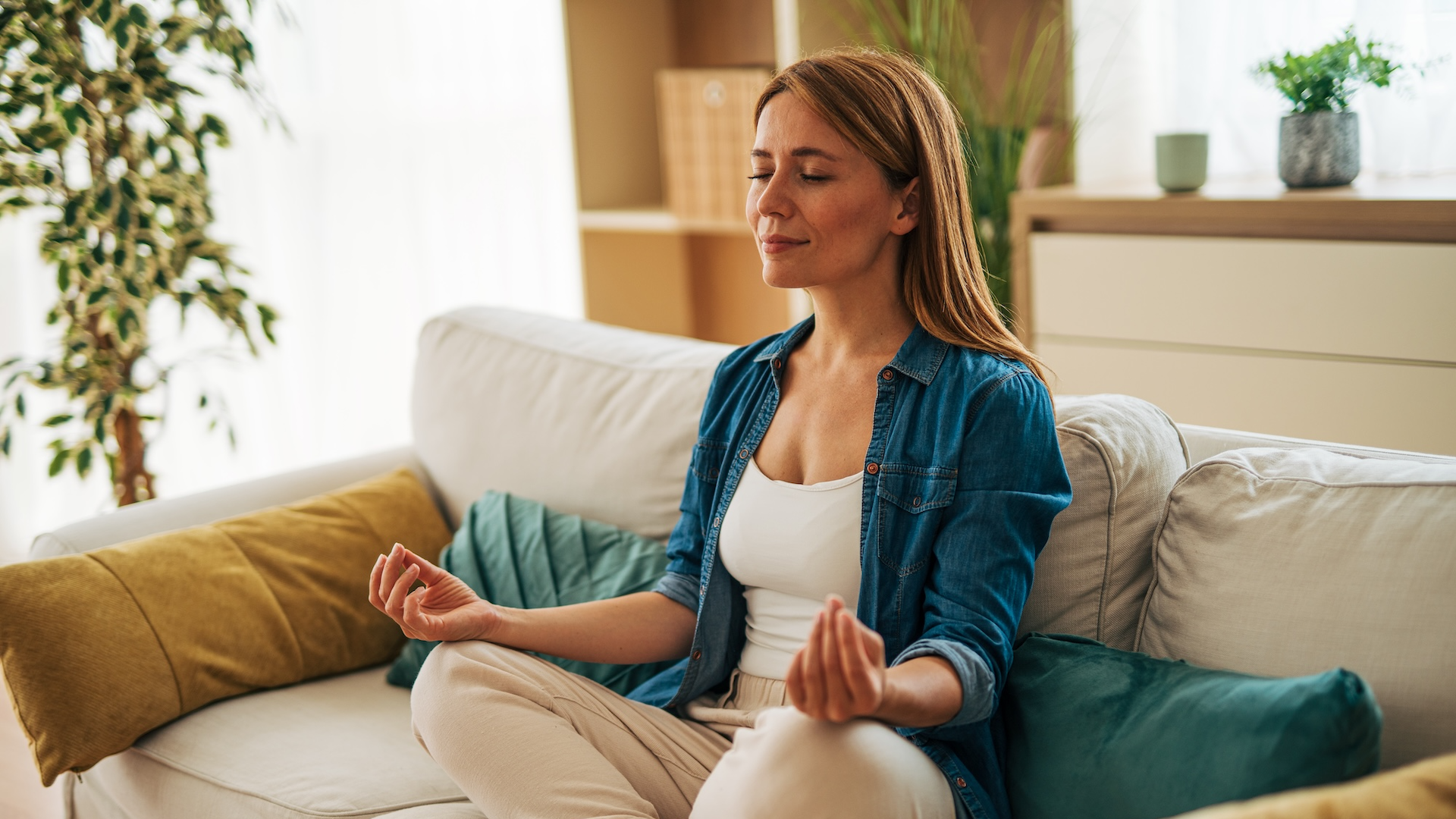
(Image credit: Getty Images)
“Meditation practice once or twice as a daily practice can help you mentally recharge and refocus,” suggests Dr Sarah Jane Khalid, a Doctify-rated holistic psychologist. “Research has found multiple benefits of daily meditation practice from as little as three minutes – including creativity, clarity, increased awareness, greater presence, improved mood and attention. “
Sign up to our free daily email for the latest royal and entertainment news, interesting opinion, expert advice on styling and beauty trends, and no-nonsense guides to the health and wellness questions you want answered.
Incorporate movement ‘snacks’

(Image credit: Getty Images)
“Instead of waiting for one long workout, add short bursts of activity, like a brisk five-minute walk, 20 bodyweight squats, or a quick set of push-ups, every hour or two,” suggests personal trainer Aimee Victoria Long. “These ‘movement snacks’ keep blood flowing and oxygen levels high, helping to prevent the mid-afternoon slump that comes from sitting too long.”
Do strength training
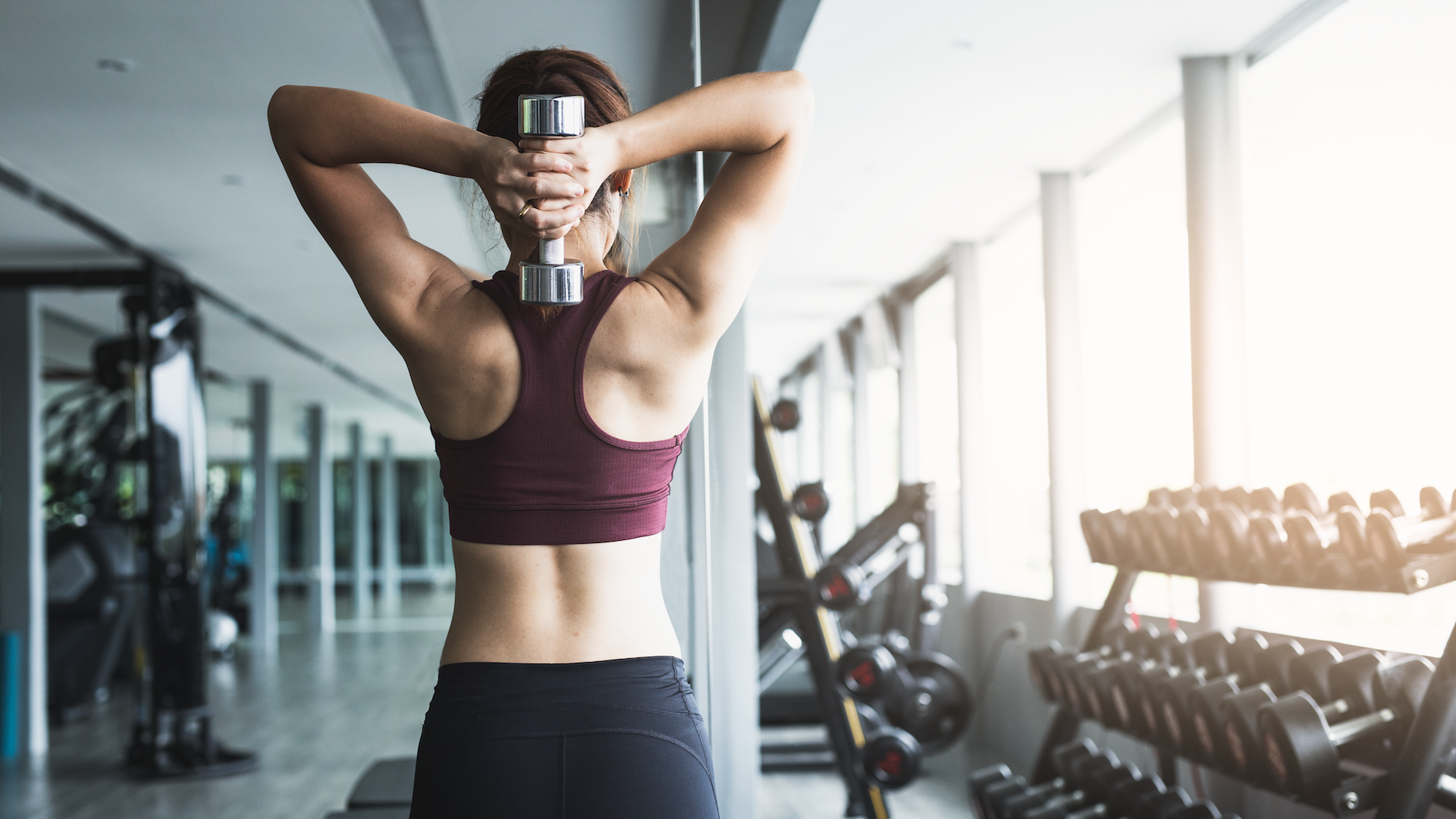
(Image credit: Getty Images)
“Prioritise strength training twice a week,” advises personal trainer Aimee Victoria Long. “Building muscle not only improves posture and mobility but also boosts your metabolism, which can help maintain steady energy levels.”
Always eat breakfast
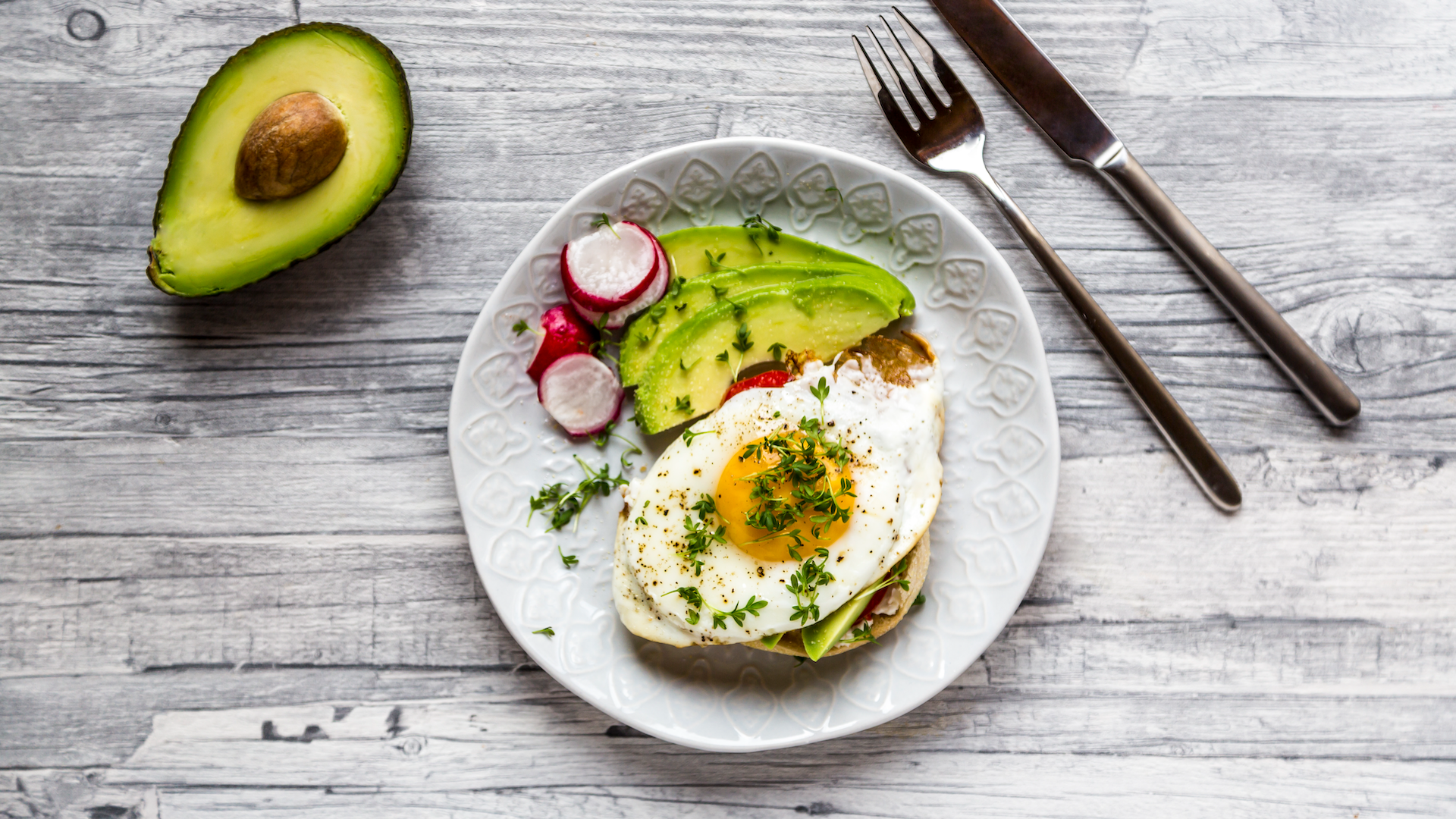
(Image credit: Getty Images)
“Eating a balanced breakfast that includes high-quality protein is especially important for women, as it supports hormone balance, metabolic health and sustained energy throughout the day,” explains Olivia Palaez, product education and training manager on the research, nutrition and innovation team at AG1. “Protein in the morning helps stabilise blood sugar levels, which in turn can prevent energy crashes later on.”
Limit caffeine intake

(Image credit: Getty Images)
“Drinking caffeine first thing can spike cortisol, the body’s primary stress hormone, which may lead to energy crashes later in the day and throw off blood sugar levels – especially when there’s no food in the system to buffer the effects,” warns Olivia Palaez, product education and training manager on the research, nutrition and innovation team at AG1. “Over time, this can contribute to fatigue, irritability and even hormone imbalances.”
Get more daylight

(Image credit: Getty Images)
“Natural light and fresh air are excellent and natural ways to boost energy levels during the day – especially first thing in the morning,” points out Olivia Palaez, product education and training manager on the research, nutrition and innovation team at AG1. “Getting even 15 minutes of sunlight first thing can significantly benefit your health and boost your mood.”
Drink more water
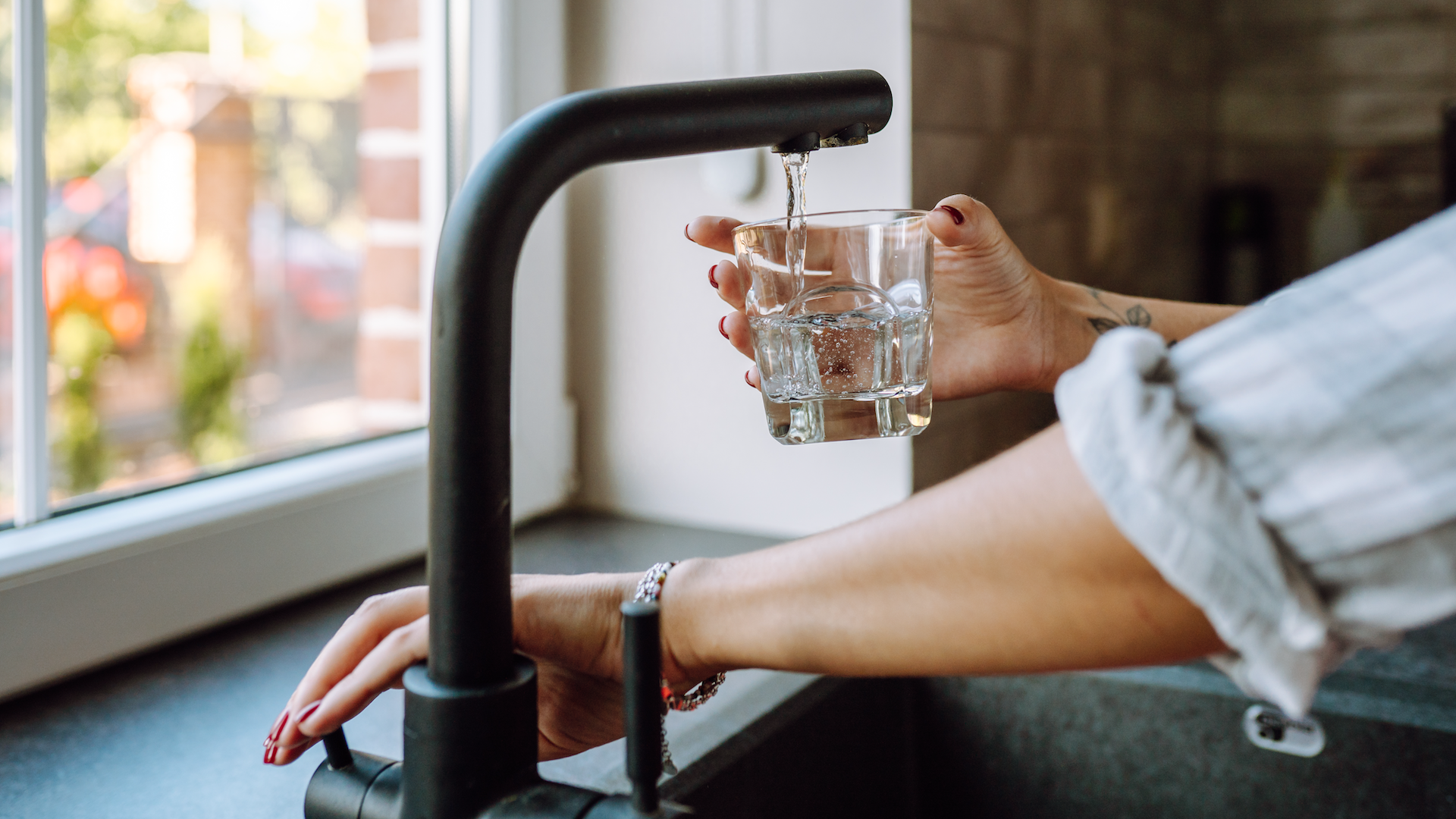
(Image credit: Getty Images)
“Sometimes the answer to feeling sluggish is simple: you’re dehydrated,” says Olivia Palaez, product education and training manager on the research, nutrition and innovation team at AG1. “When this happens, your body can’t perform its functions optimally, which can lead to fatigue, headaches and other symptoms, which make you feel generally unwell. Make sure to drink enough fluids throughout the day, and aim for at least 1.5 litres daily, preferably water.”
Reset your posture

(Image credit: Getty Images)
“When you feel sluggish, it’s often your posture that’s dragging you down,” says Catie Miller, barre and Pilates instructor and founder of Barre Series. “Stand tall, feet hip-width apart, and imagine a string lifting from the crown of your head. Roll your shoulders back and down, draw your navel gently towards your spine, and soften your knees – hold for three deep breaths, inhaling through your nose and exhaling fully. This simple alignment instantly awakens your body and increases oxygen flow.”
Stretch your body
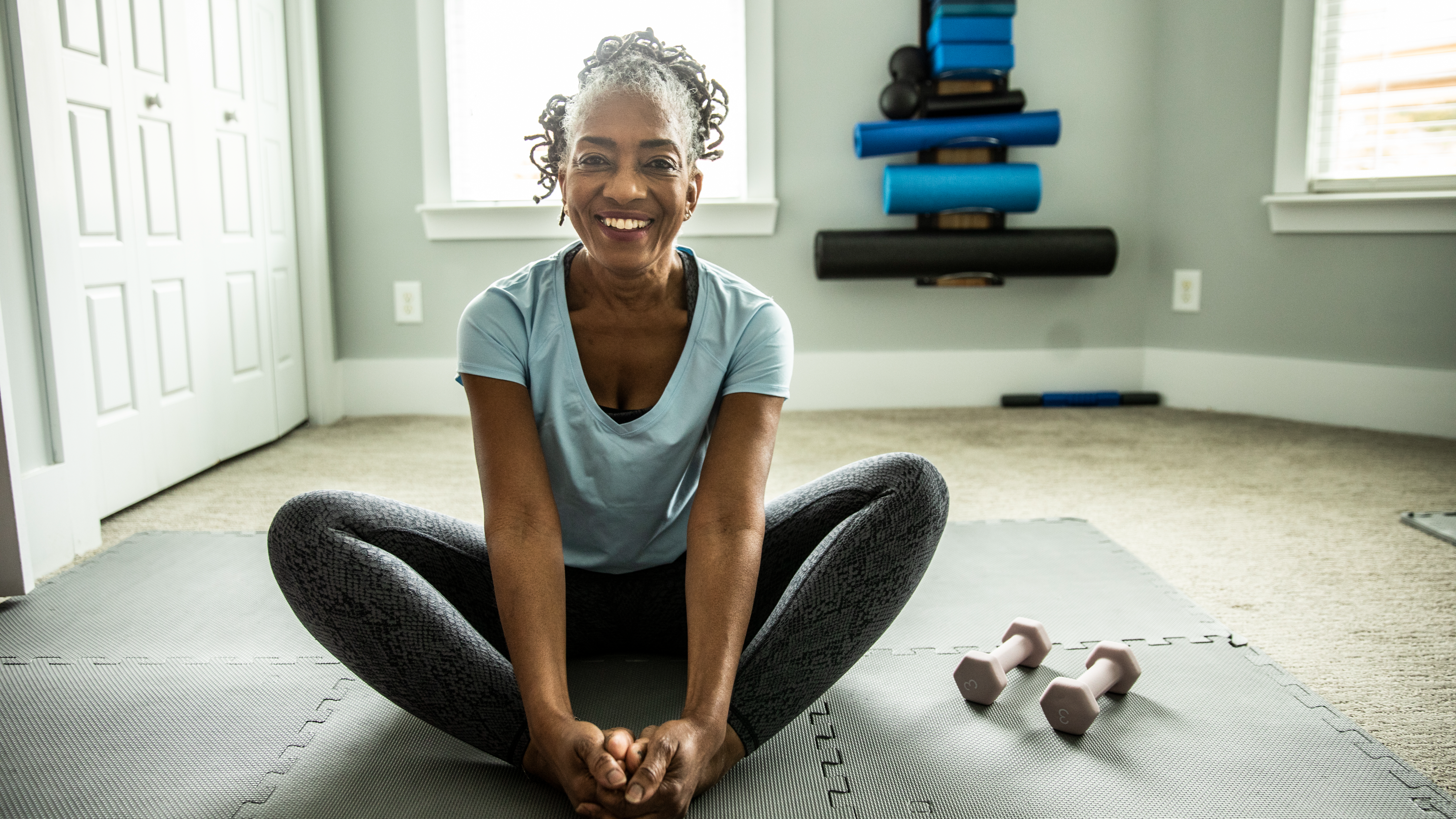
(Image credit: Getty Images)
“Moving your body can be really helpful in terms of energy levels – but this doesn’t have to be a hardcore gym class or HIIT session,” insists Adrienne Adhami, a wellness expert, author and podcast host. “Try 10 minutes of stretching, a short walk, or a 20-minute at-home workout – anything that gets you breathing deeply and gets your body moving.”
Get sunshine early
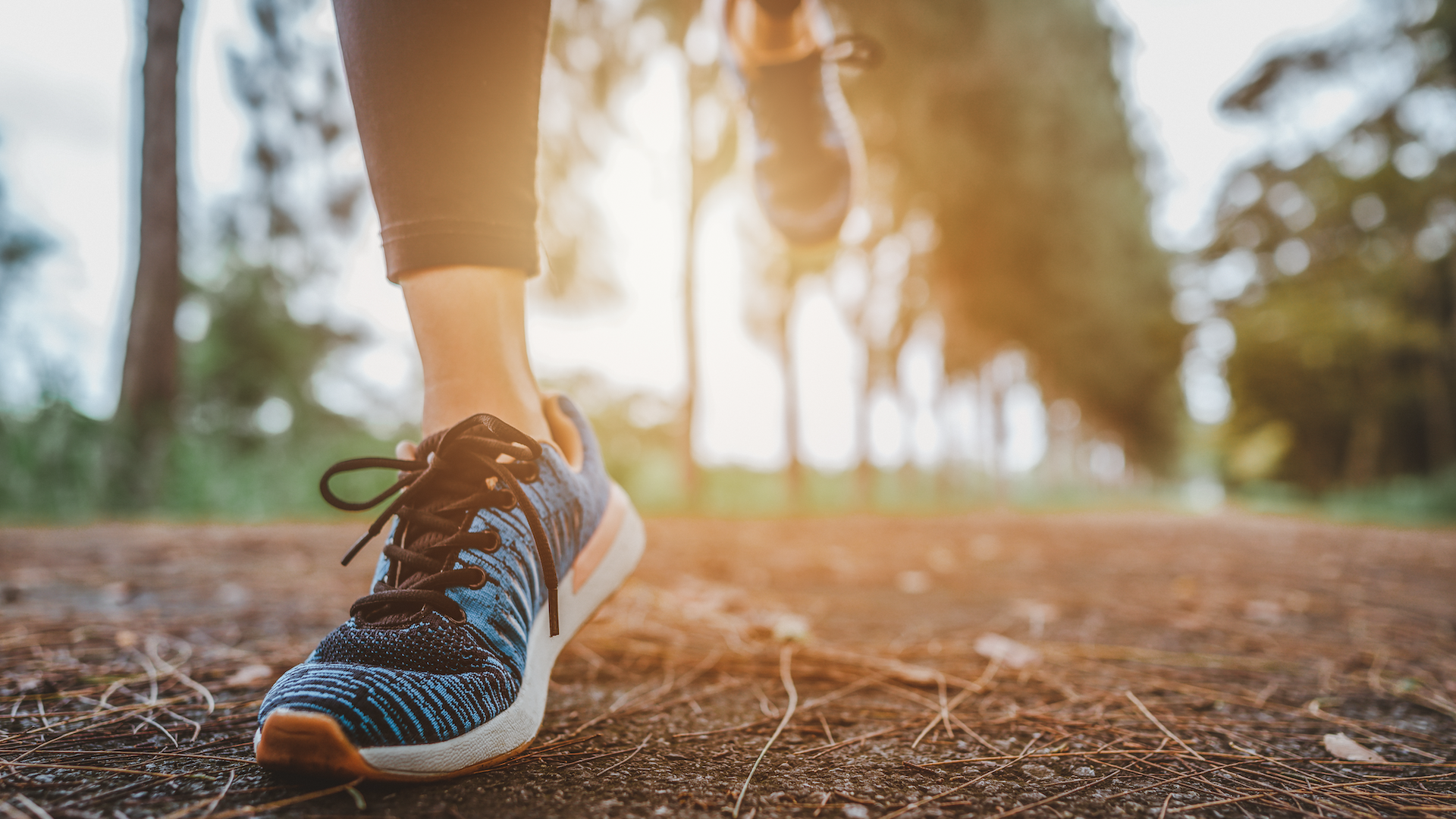
(Image credit: Getty Images)
“Get sunlight exposure as early as possible,” urges Adrienne Adhami, a wellness expert, author and podcast host. “That could be stepping outside in the garden with your tea or taking a short walk. Early light exposure supports your circadian rhythm, boosts energy and can even improve your sleep that night.”
Address micronutrient gaps

(Image credit: Getty Images)
“Many people experiencing persistent fatigue are unknowingly deficient in key energy-supporting nutrients,” warns Katherine Pardo, head of nutrition at Metagenics. “Magnesium is particularly crucial, but the reality is that many of us aren’t meeting the recommended magnesium intake, and low magnesium could be an underlying factor in many common and chronic health problems, including fatigue.”
Utilise cold exposure

(Image credit: Getty Images)
“One lesser-known but scientifically backed energy hack is strategic cold exposure through cold showers or ice baths,” notes Katherine Pardo, head of nutrition at Metagenics. “Cold exposure activates brown adipose tissue – or brown fat – which burns calories to generate heat and can significantly boost mitochondrial function – your cellular powerhouses. Even 30 seconds of cold water at the end of your morning shower can stimulate noradrenaline release, improving alertness and energy that lasts throughout the day.”
Manage blood sugar
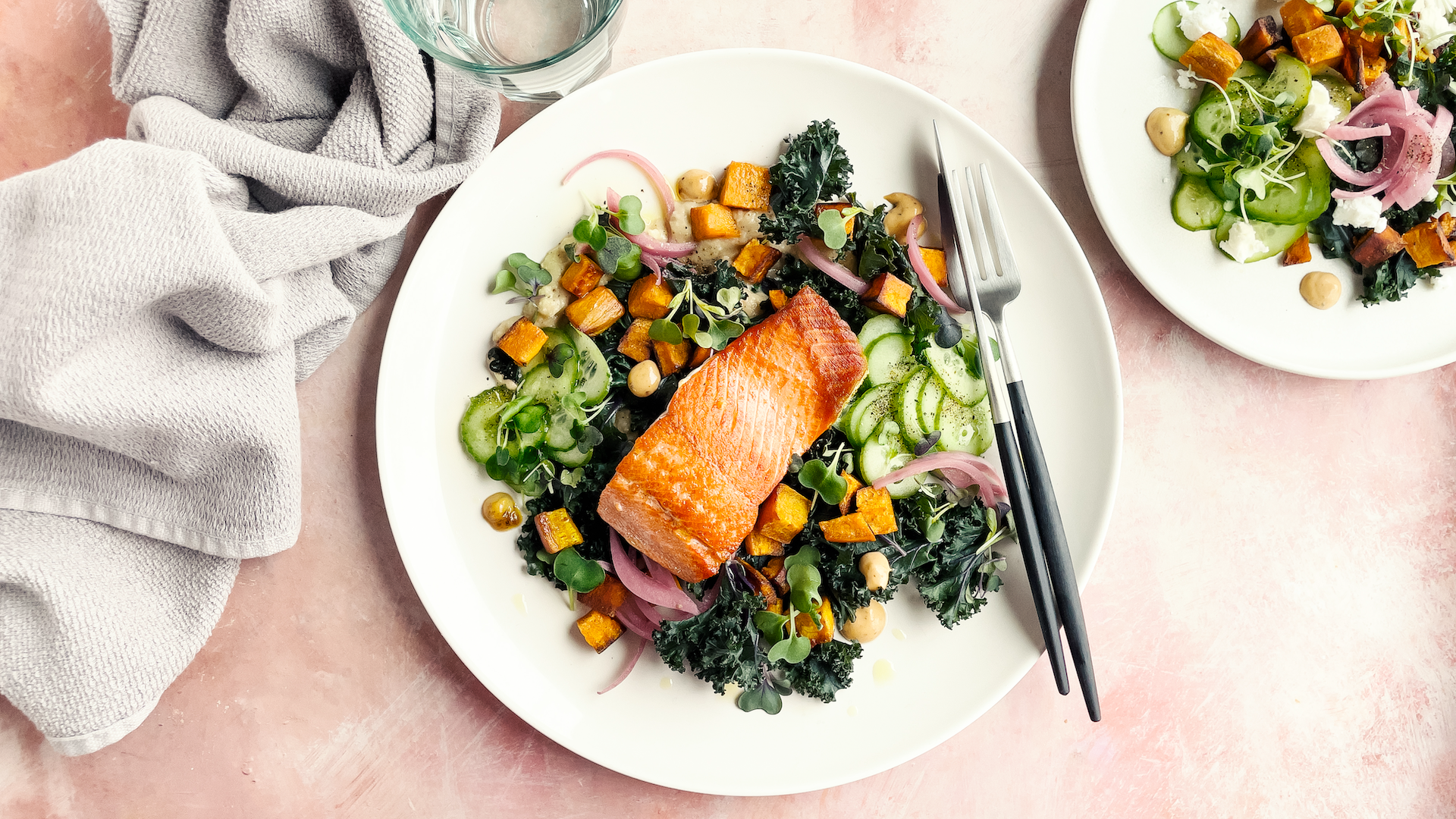
(Image credit: Getty Images)
“One of the most effective strategies for boosting energy is maintaining stable blood glucose levels,” says Katherine Pardo, head of nutrition at Metagenics. “This means pairing complex carbohydrates with protein and healthy fats at each meal. Think quinoa with grilled chicken and avocado, or porridge oats topped with nuts and berries.”
Do ‘mindful’ breathing

(Image credit: Getty Images)
“One of my favourite ways to boost energy naturally is to weave ‘mindful’ breathing breaks into the day,” shares Nicci Roscoe, holistic health and wellbeing practitioner and author of Micro Meditation. “This can be as simple as pausing for 30 seconds to two minutes, placing a hand on your belly, and inhaling deeply through the nose, letting the breath expand the belly, and exhaling slowly through the mouth.”
Try ‘micro pauses’
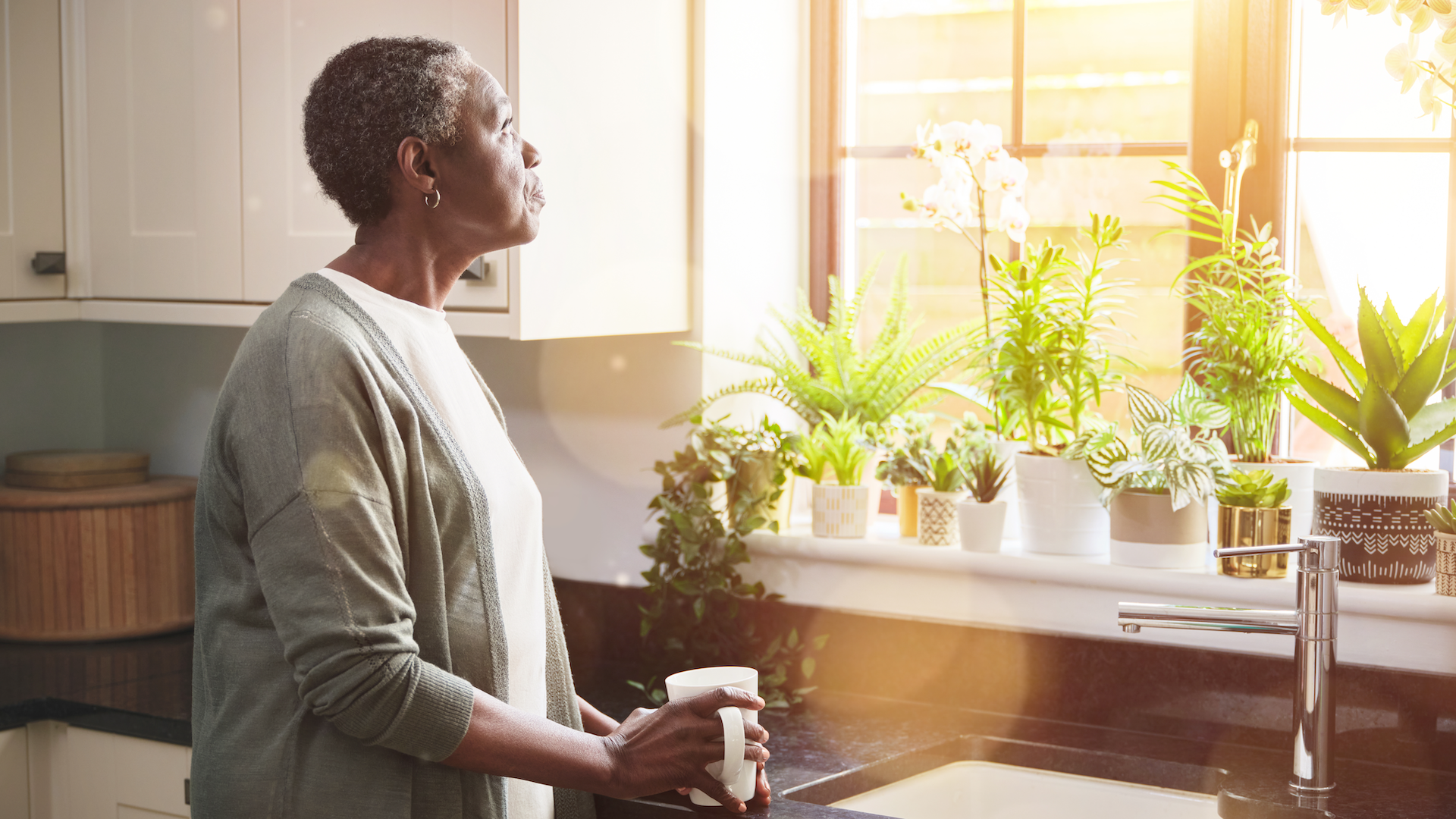
(Image credit: Getty Images)
“A simple but powerful habit is building in intentional micro-pauses between activities,” says Nicci Roscoe, holistic health and wellbeing practitioner and author of Micro Meditation. “Before moving from one task to the next, take a moment to fully stop, stretch your arms overhead, roll your shoulders, or look out the window and notice the details of what you see. Even a short walk to get a glass of water can become a moment of mindful presence.”
Get outside often
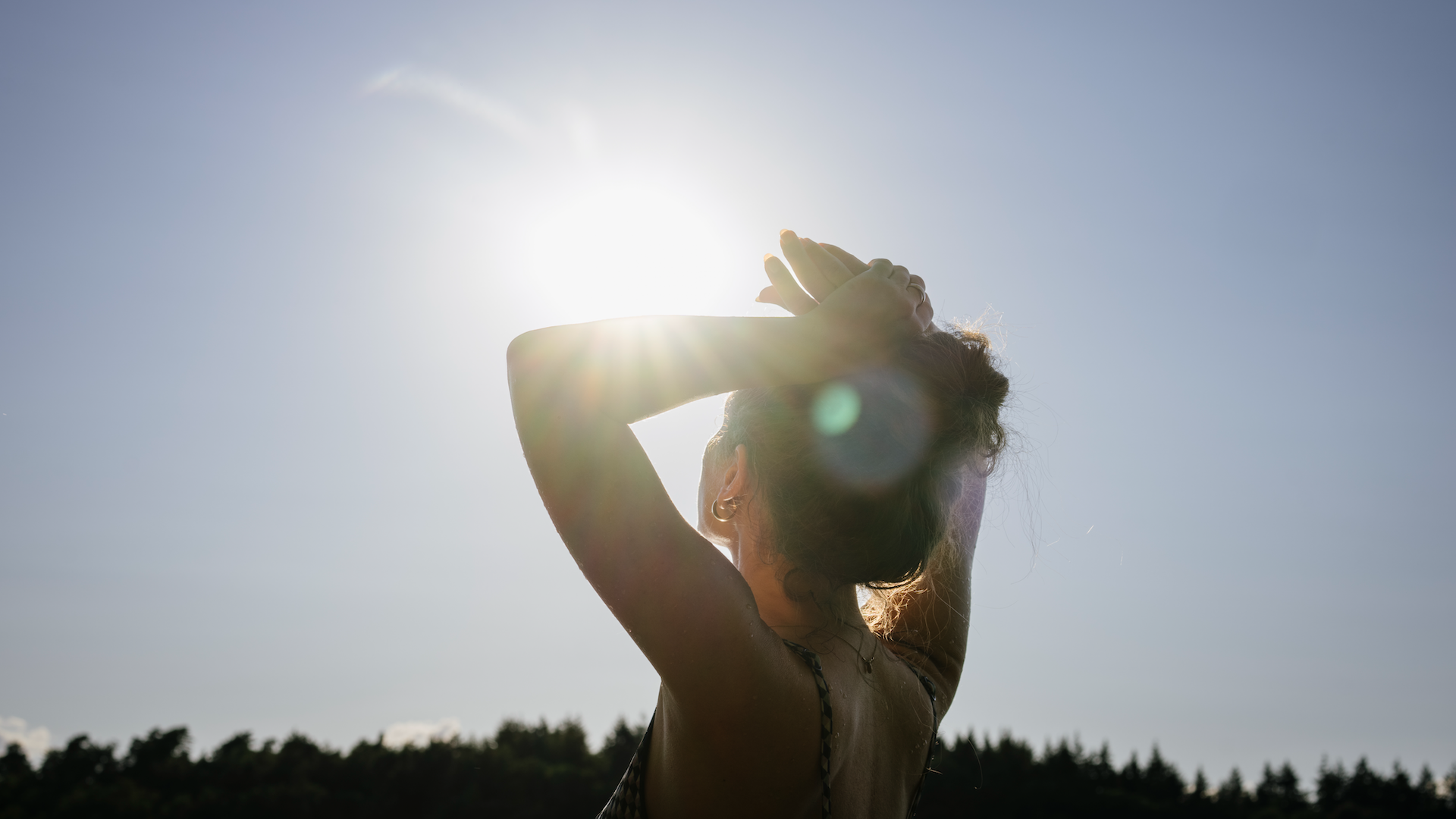
(Image credit: Getty Images)
“Getting outside for at least 20 minutes first thing in the morning – even on a cloudy day – is one of the best things you can do to increase your energy levels,” says Dr Lafina Diamandis, a GP and founder of Deia Health. “Sunlight helps to regulate the sleep-wake cycle, meaning better wakefulness in the daytime and quality of sleep at night – and we all know the power of a good night’s sleep.”
Take a walk

(Image credit: Getty Images)
“Exercise is a great way to increase energy as it increases blood flow, oxygen delivery to tissues and mitochondrial function, which declines with age,” notes Dr Lafina Diamandis, a GP and founder of Deia Health. “If you’re struggling with low energy – and particularly with burnout – be gentle with yourself and tailor exercise to your energy levels. Remember that even a brisk walk is always better than nothing at all.”
Try ‘attention fasting’

(Image credit: Getty Images)
“When you come home from work, put your phone away, turn off all devices and sit in the garden or outside and be mindful of the sounds you’re hearing and let your thoughts go in and out,” suggests Marie Reynolds, a holistic wellness expert. “This can promote cellular repair, while leading to clearer thinking, improved mood and – importantly – better energy.”
Consider your cycle
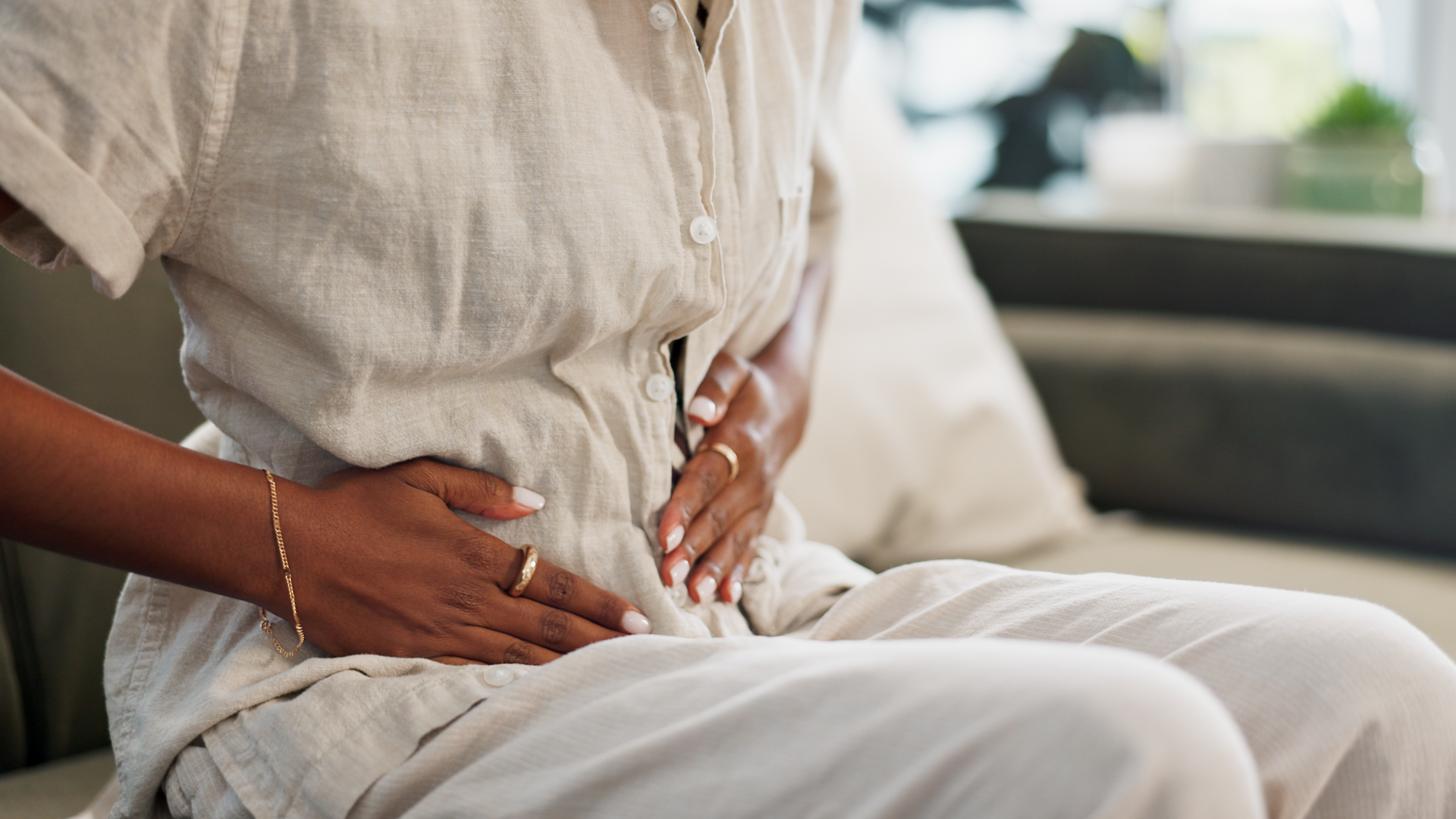
(Image credit: Getty Images)
“The follicular and ovulatory phases of your menstrual cycle often bring higher energy and mental sharpness, while the luteal and menstrual phases may call for more rest and recovery,” says Maggie McDaris, CEO and co-founder of Phase. “With this knowledge in hand, schedule strategically – align high-stakes meetings, creative work, or workouts with high-energy phases; reserve lower-energy days for deep work, admin or recovery.”
Add in music
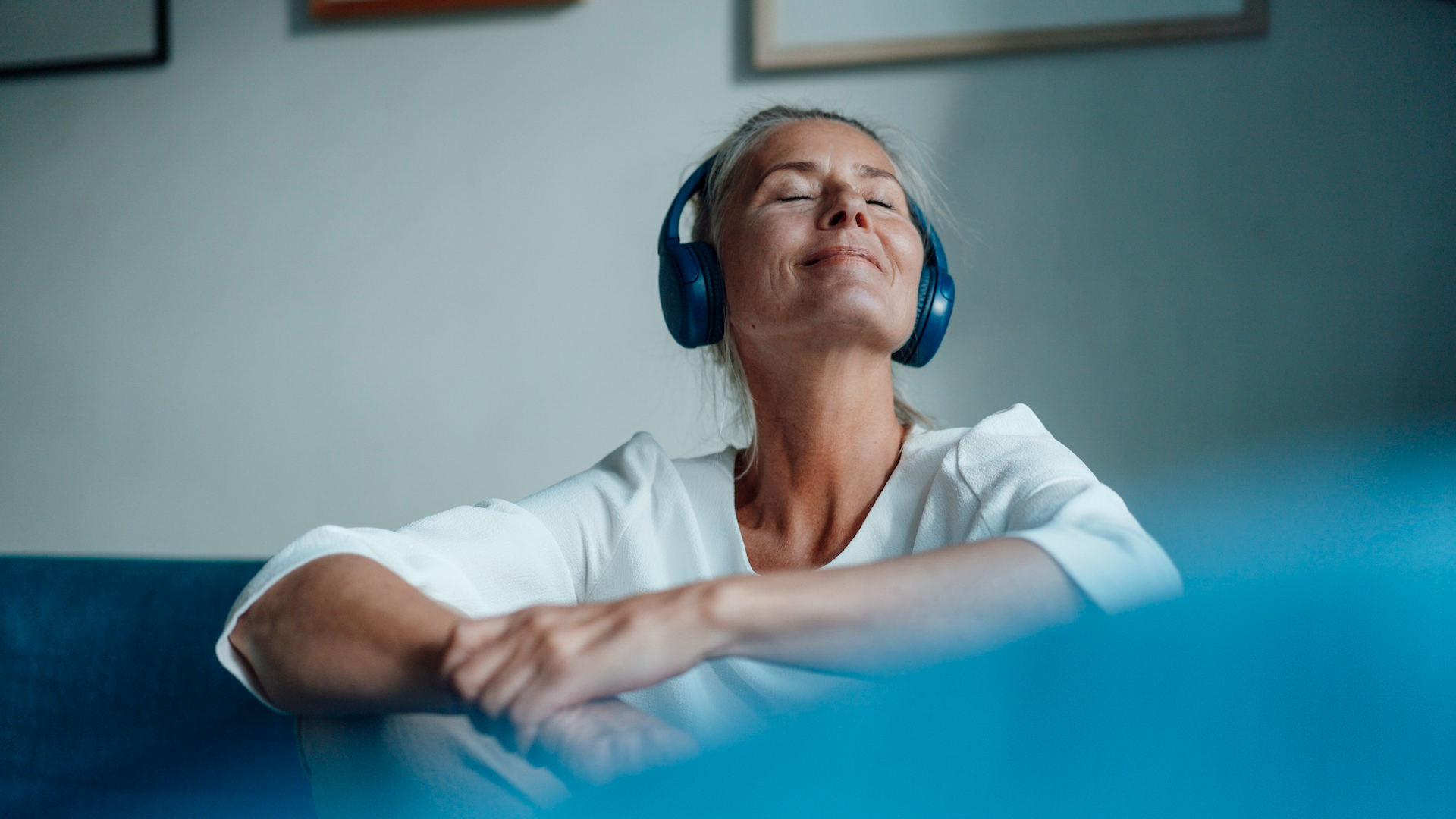
(Image credit: Getty Images)
“Create a playlist of upbeat, joyful songs that instantly lift your energy,” suggests life coach Dominique Stelling. “Music is a powerful physiological trigger: it boosts dopamine, improves blood flow and naturally encourages movement. When you pair music with everyday actions, you turn ordinary moments into joyful, energising rituals that build momentum for the day ahead.”
Get fresh air

(Image credit: Getty Images)
“Before diving into your daily routine, open a window or step outside for five to ten minutes,” advises life coach Dominique Stelling. “Fresh air oxygenates your blood, which fuels your muscles and brain for better focus and stamina.”
Use breathwork techniques

(Image credit: Getty Images)
“Alternate nostril breathing is an energy boosting hack that anyone can do – it balances oxygen flow to both sides of the brain, improves circulation and wakes up your nervous system,” explains Alex da Silva, breathwork instructor and co-founder of Silva Wellness. “You need to sit upright and close your right nostril with your right thumb, then inhale slowly through your left nostril. Next, close your left nostril with your ring finger, and release the right nostril and exhale through the right. Inhale through the right nostril, then close the right nostril, open the left and exhale through the left.”
Eat breakfast early
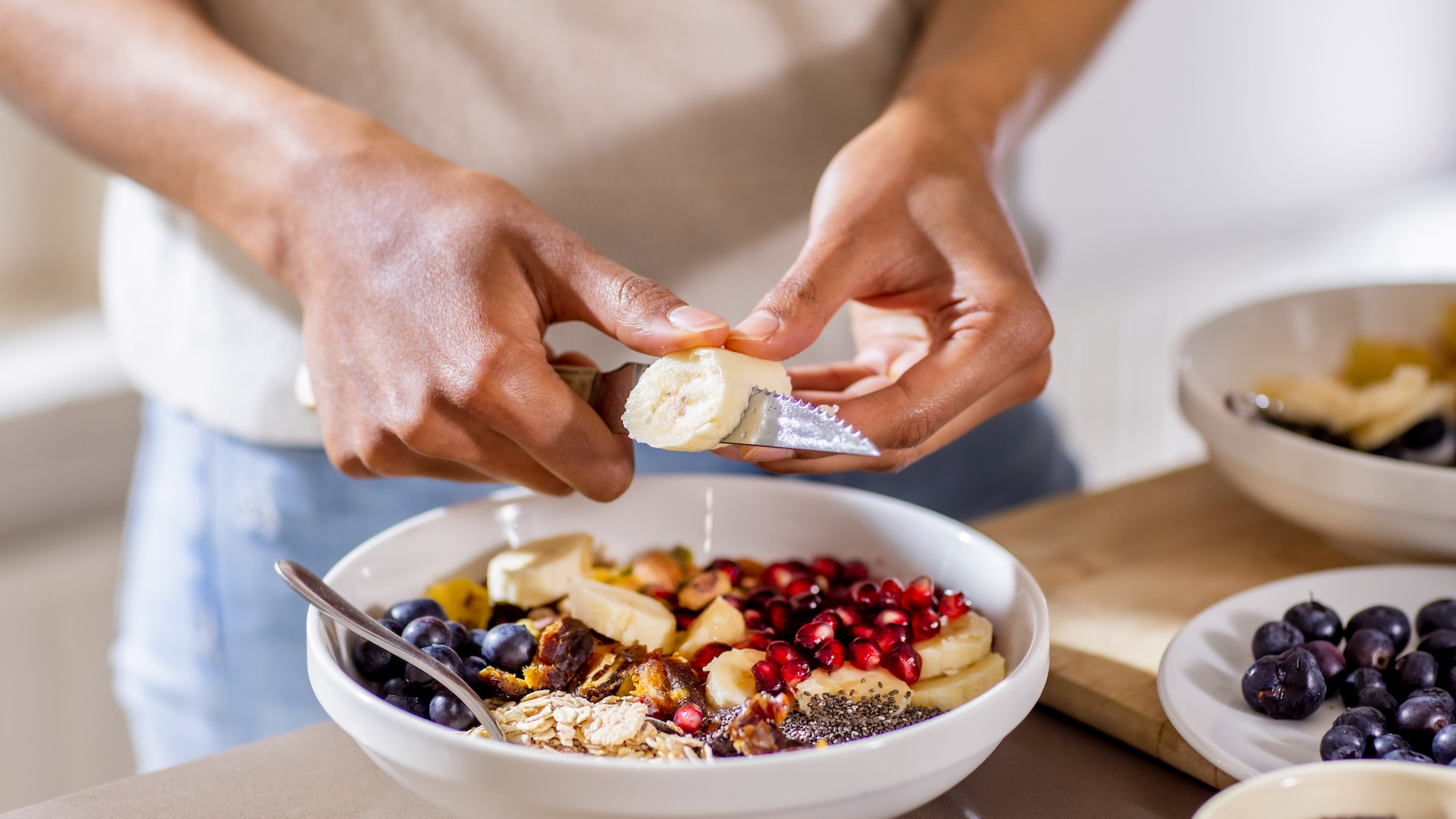
(Image credit: Getty Images)
“Eat breakfast within an hour of waking – our body secretes cortisol in the morning as a means to wake us up and get us going,” advises Lauren Johnson Reynolds, a registered nutritional therapist. “Skipping breakfast or waiting too long to eat can prolong this cortisol spike, leading to higher levels of cortisol than we would like. This can be extremely exhausting on the adrenals and lead to fatigue in the long term.”
Cut processed foods
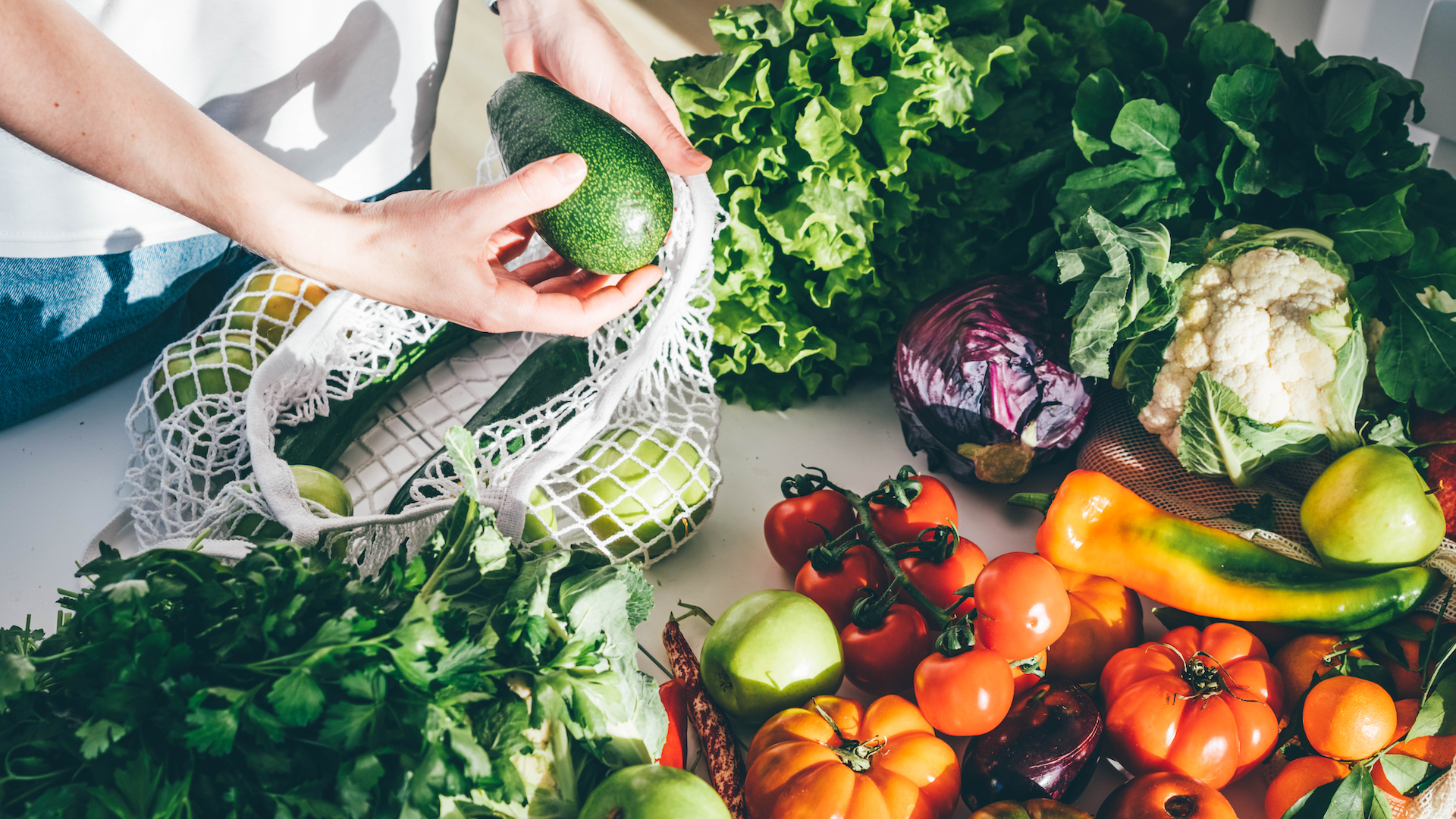
(Image credit: Getty Images)
“Cut out processed foods,” says Chloe Thomas, a personal trainer, nutrition and mindset coach. “They will leave you feeling more tired due to sharp energy spikes and big crashes, they cause inflammation, which causes you to feel lethargic and they also disrupt the gut microbiome, which affects your energy levels and mood.”
Avoid too much sitting

(Image credit: Getty Images)
“Sitting around all day will leave you feeling more tired,” notes Chloe Thomas, a personal trainer, nutrition and mindset coach. “It sounds backwards, but movement will give you energy – this is because it boosts circulation and oxygen delivery to your brain and cells.”
Snack on berries
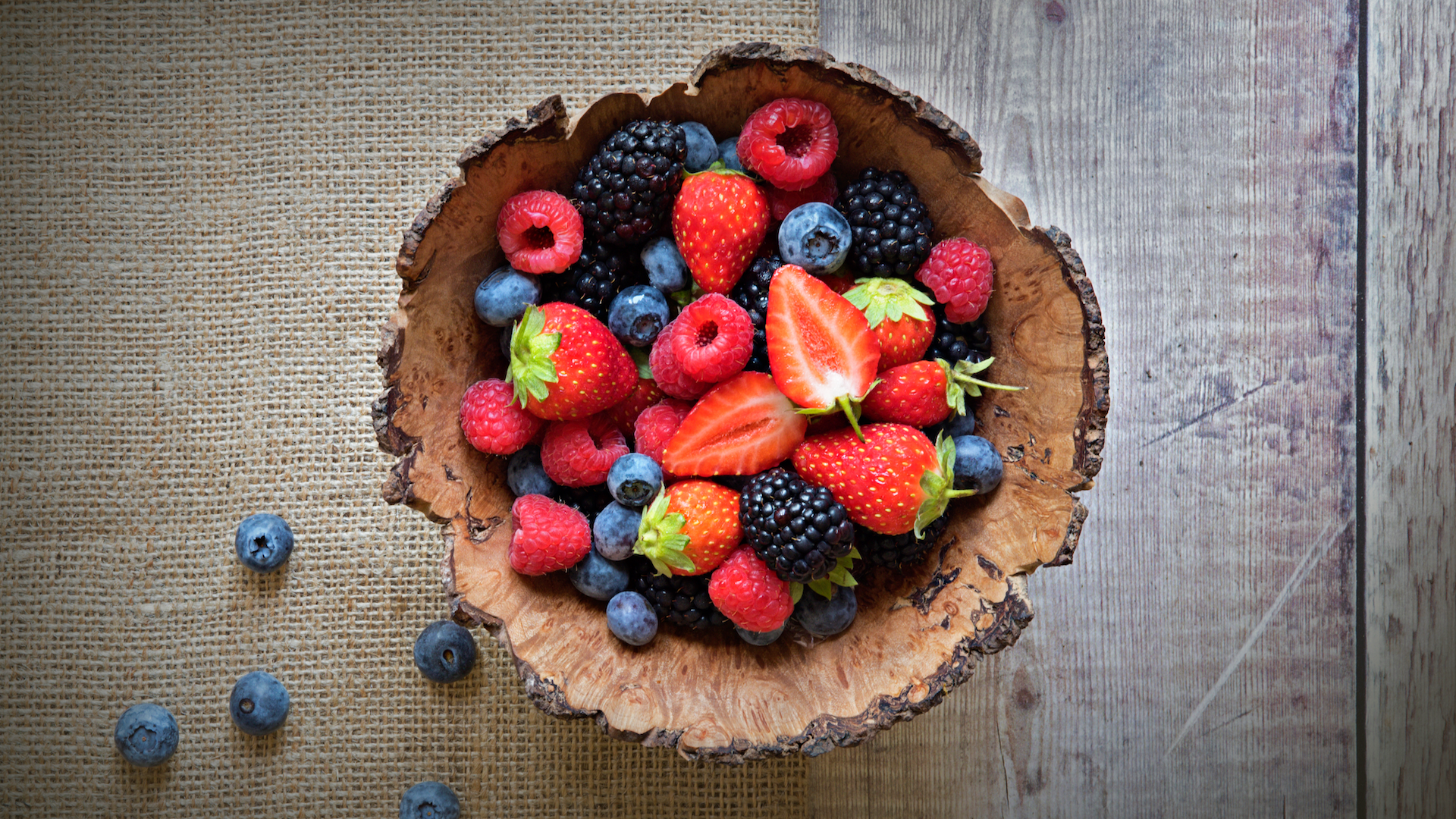
(Image credit: Getty Images)
“Blueberries and strawberries are powerhouses for your body and brain,” says Dr Sarah Jane Khalid, a Doctify-rated holistic psychologist. “Packed with anthocyanins and other polyphenols, they deliver potent antioxidant protection – helping to reduce oxidative stress and keep your blood vessels healthy. This means better circulation, improved oxygen delivery, and more efficient energy production throughout the body.”
Try low-impact movement
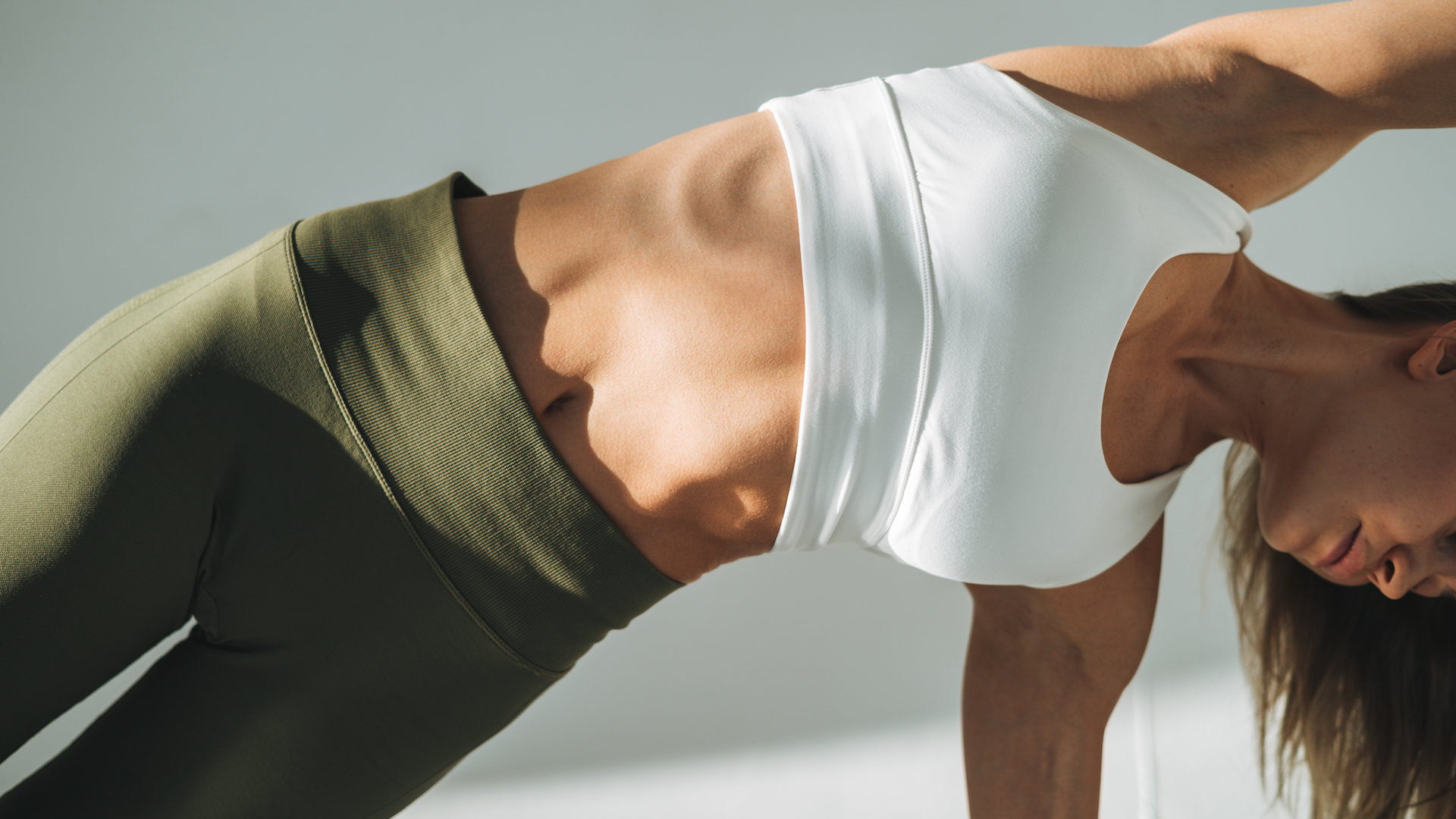
(Image credit: Getty Images)
“Just ten to fifteen minutes of gentle, low-impact exercise like Pilates or Barre can be transformative, awakening both your body and mind,” says Paola di Lanzo, personal trainer and founder of Paola’s Body Barre. “It’s about invigorating your entire system without wearing yourself out. When you move regularly, you’re recharging your energy reserves, helping you feel more vibrant, focused, and ready to take on the day. Think of it as a nurturing, energising reset, not another chore on your to-do list.”
Hydrate with electrolytes

(Image credit: Getty Images)
“Fatigue can often be a sign of dehydration in disguise,” points out Dr Nirusha Kumaran, a GP. “Try adding a pinch of Celtic sea salt or a sugar-free electrolyte powder to your water, especially if you’ve been sweating, to improve absorption and energy.”
Prioritise your sleep

(Image credit: Getty Images)
“Protect your golden hour at night,” says Dr Nirusha Kumaran, a GP. “The hour before bed sets the stage for restorative sleep. Dim lights, use of blue light blockers, avoiding heavy meals and screens, and following a calming ritual such as reading, breathwork or Epsom salt baths can help you wind down, improving sleep quality.”






